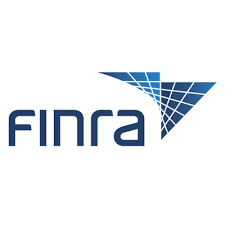The world of Outsourced Chief Investment Officers (OCIOs) is about to change as the CFA Institute's...
FINRA Proposal Would Allow Performance Projections & Targets
 FINRA is proposing a change to its “Communications with the Public” rule that could let its broker-dealer members send out performance projections or targets about private securities, asset allocations, and other investment strategies.
FINRA is proposing a change to its “Communications with the Public” rule that could let its broker-dealer members send out performance projections or targets about private securities, asset allocations, and other investment strategies.
While the move represents an easing of past prohibitions, firms will still be subject to the “stringent conditions” of the self-regulatory organization (SRO), FINRA officials say.
FINRA’s proposal to change FINRA Rule 2210 is intended to “allow a member to project the performance or provide a targeted return … that promotes or recommends specified non-public offerings, subject to stringent conditions to ensure these projections are carefully derived from a sound basis.”
For institutional communications, a firm “shall establish written procedures that are appropriate to its business, size, structure, and customers for the review by an appropriately qualified registered principal of institutional communications used by the member and its associated persons,” according to FINRA.
“Such procedures must be reasonably designed to ensure that institutional communications comply with applicable standards. When such procedures do not require review of all institutional communications prior to first use or distribution, they must include provision for the education and training of associated persons as to the firm's procedures governing institutional communications, documentation of such education and training, and surveillance and follow-up to ensure that such procedures are implemented and adhered to,” according to FINRA. “Evidence that these supervisory procedures have been implemented and carried out must be maintained and made available to FINRA upon request.”
With this proposal, FINRA is urging a set of general standards, including:
- “All member communications must be based on principles of fair dealing and good faith, must be fair and balanced, and must provide a sound basis for evaluating the facts in regard to any particular security or type of security, industry, or service. No member may omit any material fact or qualification if the omission, in light of the context of the material presented, would cause the communications to be misleading.”
- “No member may make any false, exaggerated, unwarranted, promissory, or misleading statement or claim in any communication. No member may publish, circulate, or distribute any communication that the member knows or has reason to know contains any untrue statement of a material fact or is otherwise false or misleading.”
- “Communications may not predict or project performance, imply that past performance will recur or make any exaggerated or unwarranted claim, opinion or forecast…”
The rule changes would allow:
- “A hypothetical illustration of mathematical principles provided that it does not predict or project the performance of an investment or investment strategy;”
- “An investment analysis tool, or a written report produced by an investment analysis tool, that meets the requirements of Rule 2214;” and
- “A price target contained in a research report on debt or equity securities provided that the price target has a reasonable basis, the report discloses the valuation methods used to determine the price target and the price target is accompanied by disclosure concerning the risks that may impede achievement of the price target.”
FINRA’s proposed amendments are “a welcome step in harmonizing the regulatory requirements applicable to broker-dealers and investment advisers with respect to use of performance advertising,” say lawyers at the Boston-based legal firm K&L Gates LLP, in an alert on its website. The alert was authored by attorneys Lance C. Dial, Jennifer L. Klass, and Richard F. Kerr.
“If approved by the SEC, FINRA members would be able to use performance projections and targets in a manner similar to investment advisers, which should allow for more consistency in the promotion of private funds,” according to the K&L Gates alert. “The proposed rule would also go a step further for FINRA members communicating with institutional investors, allowing the FINRA member to provide projections or targets relating to single securities (including mutual funds and ETFs).”
Among other concerns, the alert focuses on FINRA member firms “who seek to present internal rate of return (IRR) metrics for private funds.”
The SRO has “previously expressed its concerns that the use of IRR for incomplete investment programs in retail communications could be a prohibited forecast or projection; however, FINRA also noted that, for firms with ongoing operations, IRR calculated in accordance with the Global Investment Performance Standards [GIPS] would be permitted,” according to the alert.
“The Proposed Amendments could allow FINRA member firms additional latitude in presenting IRR metrics to institutional investors or QPs calculated in different methodologies, so long as the FINRA members comply with its conditions,” according to the alert.
On the FINRA website, officials offer more details on GIPS compliance claims.
“Firms that comply with all of the applicable requirements of the GIPS standards on a firm-wide basis may claim compliance with the GIPS standards (i.e., they are ‘GIPS compliant),” FINRA says. “Firms are not required to claim compliance with GIPS or choose to have their firm verified in order to use IRR in private placement communications in a manner that is consistent with the requirements of FINRA Rule 2210.”
FINRA adds that “while the GIPS standards generally prohibit firms from making any statement referring to the calculation methodology as being ‘in accordance,’ ‘in compliance,’ or ‘consistent’ with the GIPS standards, CFA Institute has created a limited exception for firms and their agents in retail communications concerning private placement offerings that are prepared in a manner consistent with FINRA Rule 2210 and the guidance in Regulatory Notice 20-21.”
“When presented in a fair and balanced manner, realized historical performance for a completed investment program, whether expressed as IRR or any other return metric, will generally be consistent with the content standards in FINRA Rule 2210,” FINRA says. However, IRR “presented for privately placed new investment programs that have no operations or that operate as a blind pool is a projection prohibited by FINRA Rule 2210.”
The SEC must give final approval to the proposed changes. For now, the SEC is accepting public comment before its final actions.
More about FINRA’s changes can be found here: https://bit.ly/41fr3eX
More about the proposal before the SEC can be found here: https://bit.ly/3RbuoHq

.jpg?height=200&name=Blog%20Images%20(1600%20x%202400%20px).jpg)



